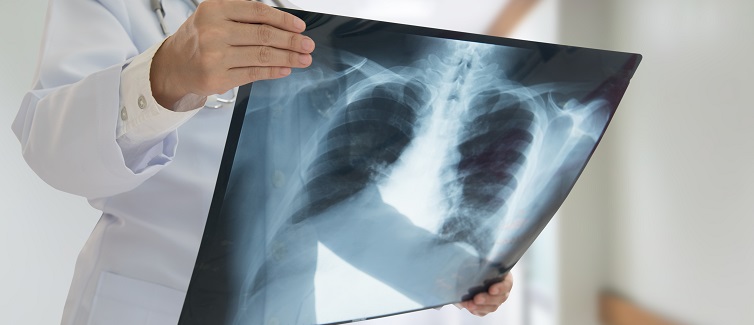If you have lung disease, you may struggle to breathe. Medications such as steroids and antibiotics help reduce inflammation and fight lung infections. This can help control lung disease.
Sometimes, medications and other treatments no longer help. When this occurs, you have advanced lung disease. For people with advanced lung disease, lung transplant may be a life-saving option.
During a lung transplant, surgeons replace one or both diseased lungs with healthy lungs from a donor.
What Conditions Do Doctors Treat With Lung Transplant?
Doctors have diagnosed about 14.8 million adults in the U.S. with chronic obstructive pulmonary disease (COPD). COPD is a group of lung diseases that includes chronic bronchitis (lung inflammation) and emphysema (damage to air sacs in the lungs). Over time, people with COPD can develop advanced lung disease.
Other lung conditions can also progress to advanced lung disease. A lung transplant may help people with:
- Pulmonary fibrosis: A condition characterized by scarring of the lungs. It has many causes including idiopathic pulmonary fibrosis (the most common cause), autoimmune disease, and chronic hypersensitivity pneumonitis.
- Cystic fibrosis: An inherited (genetic) condition in which thick mucus collects in the lungs and in other parts of the body. It causes blocked airways, infections, and an inability to digest foods.
- Pulmonary
hypertension: A disease that causes high blood pressure in the lungs due to abnormal
blood vessels which may lead to shortness of breath, need for oxygen therapy,
and heart failure. - Sarcoidosis: An immune system condition that causes inflammation in the body. Nodules (masses) form in the lungs and scar tissue develops.
Never Miss a Beat!
Subscribe to Our HealthBeat Newsletter!
Thank you for subscribing!
You can now select the specific newsletters you'd like to receive.
You are already subscribed.
Subscribe to more newsletters in our email preference center.
Sorry, an error occurred. Please try again later.
Get Healthy Tips Sent to Your Phone!
Who Qualifies for a Lung Transplant?
Doctors consider many factors when determining if lung transplant is right for you. Your doctor will refer you to a transplant center for testing.
The process starts with evaluation by a transplant team to see if you are a good candidate for a lung transplant.
There are some general requirements you must meet to qualify for a lung transplant. These include:
- Having a body mass index, or BMI, of 35 or less.
- Not having any cancer for at least 5 years (doctors may make an exception for certain cancer types).
- Not having any other significant medical problems if you are over age 70.
- Not currently smoking or using any tobacco products (vaping and chewing nicotine gum).
- Avoiding marijuana and other substance use.
Can I Have a Lung Transplant for Lung Cancer?
Doctors don’t often recommend lung transplant for lung cancer. Rarely, surgeons do lung transplant in people with certain types of lung cancer that has not spread. These cancers might include bronchogenic carcinoma (cancer that begins in tissue lining the airways).
Lung transplant for lung cancer presents challenges. Sometimes, cancer has already spread beyond the lungs and replacing the lungs will not get rid of all cancer. In addition, the medications used after a transplant tend to make cancers behave more aggressively. If you have a lung transplant, surgeons must be sure that cancer cells don’t spread to the donated healthy lung during surgery.
Because so many people are on the lung transplant waiting list, doctors must consider your long-term outlook for recovery.
Am I Too Old to Have a Lung Transplant ?
Your age is one of the factors transplant teams consider before approving you for lung transplant. There is no age limit on who can receive a lung transplant. But doctors consider how likely you are to tolerate the surgery and to recover after.
That’s why if you are over age 70, you must not have any other significant medical problems. Your health plays an important role in lung transplant surgery outcomes. The International Society for Heart and Lung Transplant Registry reports that 59% of adult lung recipients survive at least 5 years.
What to Expect After Lung Transplant
If you have lung transplant , you’ll recover in the hospital for about a month. When you go home, you’ll need caregivers who can help you at all times. You’ll also need to stay close to the transplant center so you can keep all follow-up appointments.
Sources
Centers for Disease Control and Prevention, Cystic Fibrosis,https://www.cdc.gov/genomics/disease/cystic_fibrosis.htm
American Lung Association, Pulmonary Fibrosis, https://www.lung.org/lung-health-diseases/lung-disease-lookup/pulmonary-fibrosis
American Lung Association, Sarcoidosis, https://www.lung.org/lung-health-diseases/lung-disease-lookup/sarcoidosis/learn-about-sarcoidosis
Centers for Disease Control and Prevention, What is Asthma?, https://www.cdc.gov/asthma/faqs.htm
National Cancer Institute, Lung Cancer, https://www.cancer.gov/types/lung
National Heart, Lung, and Blood Institute, COVID-19 and the Lungs, https://www.nhlbi.nih.gov/coronavirus/lungs
The Lancet Oncology, Lung Transplantation for Non-small Cell Lung Cancer and Multifocal Brochioalveolar Cell Carcinoma, https://www.thelancet.com/journals/lanonc/article/PIIS1470-2045(18)30297-3/fulltext
National Cancer Institute, Bronchogenic carcinoma, https://www.cancer.gov/publications/dictionaries/cancer-terms/def/bronchogenic-carcinoma
UMPC Transplant Services, Who Is a Lung Transplant Candidate?, https://www.upmc.com/services/transplant/lung/candidates
UPMC Transplant Services, Lung Transplant Surgery Frequently Asked Questions, https://www.upmc.com/services/transplant/lung/process/faq
About Transplant Services
For more than four decades, UPMC Transplant Services has been a leader in organ transplantation. Our clinicians have performed more than 20,000 organ transplant procedures, making UPMC one of the foremost organ transplant centers in the world. We are home to some of the world’s foremost transplant experts and take on some of the most challenging cases. Through research, we have developed new therapies that provide our patients better outcomes — so organ recipients can enjoy better health with fewer restrictions. Above all, we are committed to providing compassionate, complete care that can change – and save – our patients’ lives. Visit our website to find a provider near you.
